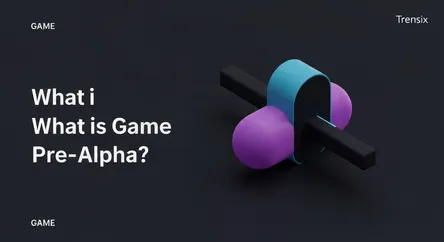Game
What is Game Pre-Alpha?

Discover what 'pre-alpha' means in game development. Learn about this crucial early stage and how it impacts the final product and its players.
What is it?
Pre-alpha refers to all activities performed during the software project before formal testing. It's the earliest playable stage in the game development cycle, even preceding the alpha version. During this phase, core gameplay mechanics are being implemented and tested, but the game is far from feature-complete. You can expect placeholder art, unstable builds, and significant bugs. The primary goal of the pre-alpha is for the internal development team to prove concepts, experiment with core systems, and build the foundational framework of the game before moving into more structured production and testing phases like alpha and beta.
Why is it trending?
'Pre-alpha' is gaining visibility as game development becomes more transparent. Many studios, especially in the indie scene, embrace open development, sharing early footage or even offering closed pre-alpha access to dedicated community members. This approach builds hype, creates a loyal following, and allows developers to gather crucial feedback on core gameplay loops before committing significant resources. Crowdfunding platforms and Early Access models have further popularized this, as showing a pre-alpha build can prove a project's viability to potential backers and early adopters.
How does it affect people?
For developers, the pre-alpha stage is a critical, iterative period for shaping the game's soul. For players, it offers a unique look behind the curtain. Those who participate in pre-alpha tests can have a genuine impact on the game's direction. However, it requires managing expectations; players are not experiencing a demo but a work-in-progress. For the wider gaming public, seeing pre-alpha gameplay can sometimes lead to premature judgment, as it doesn't represent the final quality. It's a raw, unfiltered look at the creative process, for better or worse.